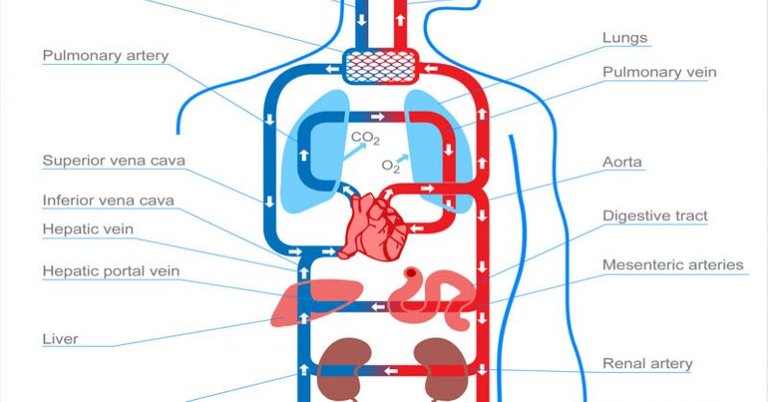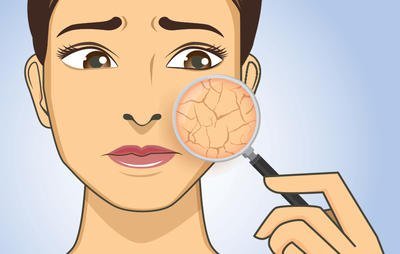Poor blood circulation happens to people on various levels. Some have it from their gene which is believed to be incurable, and others, their present health. However the case, poor circulation around the body is dangerous and will be good we are aware of it, so as to take steps as necessary.
Poor circulation has the ability to affect your organs, system and appendages, as the blood will not necessarily get into every area it ought to.
Here are some of the symptoms of poor blood circulation;
• Lack of Energy
Even with plenty of sleep, and healthy diet, you still feel exhausted. And it seems like there is no energy to burn out during the day.
The blood contains oxygen, which is also distributed to every part of the body including the brain and muscles. When oxygen doesn’t seem to circulate to this systems, they deteriorate, regardless of the protein and oil in take you have.
Also, the amount of iron in our body can affect our productivity. Fatigue can be as a result of low amount of iron in your diet. Iron helps in creating red blood cells.
• Cold Hands and Feet
Another symptom is that you will notice the constant coldness in your hands and feet, whether in cold season or hot and this is because your oxygenated blood isn’t reaching your hands and feet. The blood helps warm up this areas, which means when there is no proper circulation, they get cold. And for many, the fingers and toes turns white.
Warming the hands, maybe with warm water, will only temporarily get rid of the symptoms, but won’t get rid of the real problem of poor circulation. But one must be careful of the artificial warming, not to harm yourself. Some victim of the problem do always have sweatshirt on even in sunny time. They feel cold at most times.
• Dizziness, poor concentration and memory
Poor circulation can be responsible for poor concentration and memory by lack of oxygen. The brain, which is the seat of concentration and memory, shuts down as it is not getting the red blood cells needed, and by this, the brain stops the least important things to focus on the more important ones.
This symptoms is responsible for repetition while reading without taking them in and not understanding information been passed across quickly.
Dizziness is also not far from such individuals, as the brain isn’t getting enough oxygen to keep up working efficiently. Some people experience headaches on regular basis because of this poor circulation.
• Sensations and numbness
Ever sat on your legs and feel a sensation or numbness when you stretch out those legs. It like your legs are not part of your body? That should be normal and should be happen to any average person. The problem comes when you just get the sensation or numbness for no reason. It is a sign that these areas are experiencing a poor flow of blood. And look out for postures that put pressure on one part of the body.
• Dryness of the skin
Despite getting enough water, the skin may dry out. Because of the circulation problem, the water in the body is directed elsewhere, hence, not seen on the surface of the skin. An artificial way to repair this damage is in the use of cream, which in most case does not treat the situation.
This dryness on the skin can be flaky and painful. The skin can even get bruised as the lack of oxygen causes skin discoloring, which is common with the fingers and toes. Also watch out for skin inflammations and patches on the body.
• Swellings around the body
Poor circulation can also be responsible for swellings around the body. The body retain water around certain points like the ankles, which result in expanding. It is also common with pregnancy, as the feet is put to work. And one way to treat yourself if experienced is by raising your feet against gravity, thereby pulling the water out of where it been retained.
While swollen, the fingers and toes can be numb, cold and discolored.
• Difficulty of Breathing
Poor circulation can lead to chest tightening, shortness of breath and breathing difficulties. And this poor circulation can affect your cardiovascular system as the heart isn’t getting the oxygen needed. The pain could come and goes, but it best not ignore.
• Not feeling Hungry
As poor circulation affect the brain, it can affect the brain from passing the appropriate message to the stomach when hungry, thereby making you not feel like eating something.
The major problem is not eating, but the low calories in the body, giving the body problem and making it weary.
Conclusion
Changing our mode of action towards the body can cause a great deal of improvement on the circulation of blood and fluid around the body.
Regular exercises, avoiding long immobility, shunning cigarette and changing our diet can improve the circulatory system. drinking water and tea, eat food with lot of iron can also be of help.



